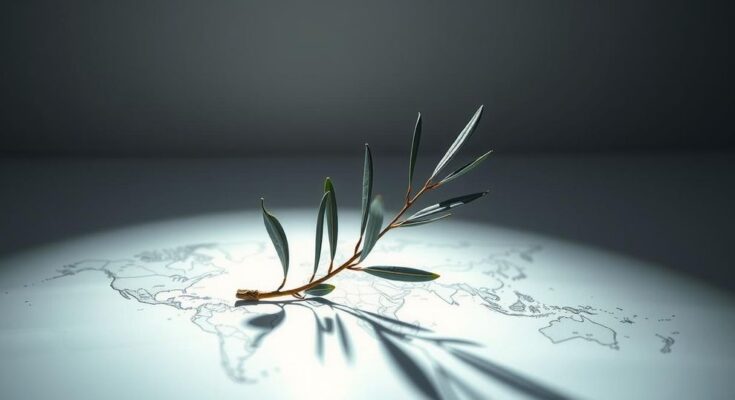The DRC has urged the United Nations to sanction Rwanda for sending troops across the border, framing it as a “declaration of war.” The M23 militia, reportedly backed by Rwanda, is advancing towards Goma, causing casualties among foreign peacekeepers. The conflict prompted the UN to call for a ceasefire and led to a breakdown in diplomatic relations between the two nations, exacerbating an already volatile situation in the region.
The Democratic Republic of Congo (DRC) has appealed to the United Nations to impose sanctions on Rwanda, claiming that the latter’s troop movements across the border amount to a “declaration of war.” Concerns are rising as the Rwandan-backed M23 militia approaches Goma, the capital of North Kivu province. The DRC asserts these reinforcements from Rwanda, which include an estimated 500 to 1,000 soldiers, threaten its sovereignty and security.
In recent developments, foreign peacekeepers have suffered casualties in the escalating violence, prompting UN Secretary-General Antonio Guterres to request that Rwanda withdraw its forces. During an emergency UN Security Council meeting convened due to the crisis, DRC Foreign Minister Therese Kayikwamba Wagner emphasized the seriousness of the situation, claiming Rwanda’s actions reflect an overt aggression against its nation.
As the conflict intensifies, Goma experiences heavy shelling, leading to an influx of displaced individuals seeking safety. Previous peace negotiations between Congolese President Felix Tshisekedi and Rwandan President Paul Kagame have collapsed, exacerbating tensions. Additionally, Kigali has been accused of leveraging the conflict for access to DRC’s mineral resources, fueling suspicions and international condemnation of Rwanda’s involvement.
Kayikwamba has called for the Security Council to consider a “total embargo on the export of all minerals labeled as Rwandan,” particularly gold, as a means of addressing the situation. The diplomatic breakdown between the two nations has prompted both to recall their ambassadors, highlighting the gravity of the conflict.
Amidst this turmoil, UN peacekeeping operations in the region have become more perilous, with numerous casualties among personnel from various nations reported recently. In reaction to these hostilities, the UN has begun to evacuate non-essential staff from Goma, highlighting the urgent need for stabilization in the conflict-ridden area.
Tensions between the Democratic Republic of Congo and Rwanda have a long and complex history, often revolving around armed groups operating in eastern DRC, particularly in North Kivu. The M23, a rebel group that has previously occupied Goma, claims to represent the interests of the Tutsi population in the region and has frequently been accused of receiving support from Rwanda. International observers note that access to DRC’s mineral wealth, such as gold, has frequently fueled conflicts, leading to regional instability and various ceasefire violations over the years. The recent increase in hostilities indicates a potential regional crisis that could further draw in international actors or exacerbate existing humanitarian issues.
The Democratic Republic of Congo’s call for UN sanctions against Rwanda marks a significant escalation in the ongoing conflict, particularly as the militia M23 intensifies its approach to Goma. Diplomatic relations have deteriorated sharply, and the involvement of foreign peacekeepers has led to tragic losses. The international community, including the UN and the African Union, is under pressure to respond decisively to prevent further violence and protect the region’s stability and security.
Original Source: www.dailygazette.com




